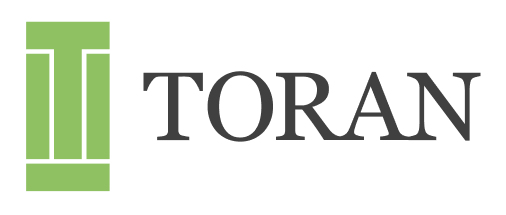
Income Strategies
Income Strategies for S-Corporations and LLCs
Maximizing your income while minimizing tax liabilities is a critical aspect of running a successful business. At Toran, we offer tailored income strategies for S-Corporations and LLCs, helping you navigate the complexities of different income types and optimize your tax position. Here’s how we can help you make the most of your business income.
Understanding Active vs. Passive Income: Key to Effective Tax and Income Management
Active Income
Active income refers to earnings generated through direct participation in a job or business. This includes wages from employment (W-2 income) and business income from entities like an S-Corporation or LLC. Active income is typically subject to higher tax rates, including federal income tax, which ranges from 0% to 37% or more, depending on your earnings. Additionally, active income is subject to Social Security and Medicare taxes (15.3%), which further increases the overall tax burden. Business owners must be mindful of how their active income is taxed to avoid potential surprises at tax time and plan their cash flow efficiently.Passive Income
Passive income, on the other hand, is derived from investments where you are not actively involved. This includes income from rental properties, dividends from stocks, and interest from savings accounts or CDs. Passive income generally benefits from more favorable tax treatment compared to active income. It is not subject to Social Security or Medicare taxes, making it more tax-efficient. In addition, certain forms of passive income, such as long-term capital gains, may be taxed at preferential rates ranging between 0% and 23.8%, depending on your income and how long you’ve held the investment.Key Strategies for Managing Business Income
Proper Payment and Income Recording
It’s vital to ensure that all business income is properly directed to your business accounts to maintain accurate records. Any income earned by your business should be processed through the business bank account, and cash payments should be avoided when possible. Properly managing and recording income ensures clear financial documentation, which is critical for tax reporting and financial planning.Managing Wages and Officer Compensation
For S-Corporation owners, determining reasonable officer compensation is key to avoiding IRS scrutiny. Wages are subject to Social Security and Medicare taxes, making them one of the most expensive forms of income. However, paying yourself a reasonable salary is necessary to maintain compliance with S-Corporation status. Our team helps business owners determine the right salary by assessing factors like industry standards, business performance, and the time spent managing the company.Maximizing Shareholder Distributions
Once you’ve paid yourself a reasonable salary, you may be able to take additional profits as shareholder distributions. These distributions are often not subject to Social Security and Medicare taxes, making them a more tax-efficient way to withdraw profits. However, for multi-owner S-Corporations, distributions must be proportional to ownership to maintain compliance with IRS regulations. At Toran, we provide expert guidance on managing both active and passive income to optimize tax savings and enhance your financial strategy. By implementing these income management techniques, you can ensure your business remains tax-efficient while maintaining compliance with tax laws.Advanced Income Strategies: Maximizing Tax Efficiency for Your Business
Renting Property to Your Business
One highly effective strategy is renting personal property, such as a home office or garage, to your business. If your S-Corporation or LLC uses part of your personal property for business purposes, you may be able to rent this space to your business. The rental payments you receive are deductible as a business expense, which reduces your taxable income for the business. However, it’s crucial to ensure that the rent charged is aligned with fair market value to avoid IRS penalties. The transaction must be properly documented and follow IRS guidelines to ensure that it is considered legitimate. This strategy not only helps reduce the business’s taxable income but also provides a tax-efficient way for you to generate additional personal income. However, the key is ensuring that the rental arrangement is structured correctly to avoid any IRS scrutiny. At Toran, we guide business owners on how to implement this strategy effectively, ensuring compliance and maximizing tax savings.Royalty and Licensing Fees
If your business uses intellectual property (IP) that you personally own—such as a trademark, patent, or domain name—you may be able to charge your business royalty or licensing fees. This strategy allows you to shift some of the business income to yourself personally, potentially at a lower tax rate. Royalty and licensing fees are deductible as business expenses, further reducing the taxable income of the business. As with renting property, it’s important to ensure that the fees charged for the use of intellectual property are reasonable and in line with fair market value. The IRS pays close attention to these types of transactions, so proper documentation and valuation are critical. By structuring royalty agreements carefully, you may be able to reduce the tax burden on your business while generating income personally. At Toran, we help business owners navigate the complexities of using personal assets and intellectual property in their business operations. Our advanced income strategies are designed to minimize tax liabilities while maintaining full compliance with IRS regulations. With our expertise, you may be able to maximize the benefits of these strategies and ensure long-term financial success for your business.Common Pitfalls to Avoid in Income and Tax Strategies
Unreasonable Compensation
One of the most frequent mistakes S-Corporation owners make is paying themselves an unreasonably low salary. The IRS requires that S-Corporation owners who actively work in their business receive “reasonable compensation” in the form of wages, which are subject to Social Security and Medicare taxes. If you pay yourself too low of a salary, while taking large distributions, this can trigger an audit and lead to penalties. Striking the right balance between salary and distributions is critical to avoiding IRS scrutiny while maintaining tax efficiency. At Toran, we help determine the right compensation based on your industry, experience, and the time spent managing the business.Improper Income Classification
Misclassifying income is another common pitfall that can lead to severe penalties. Active income, which is earned through direct involvement in your business, and passive income, earned through investments, are taxed differently. Misreporting active income as passive or vice versa can result in hefty fines and interest. It’s essential to properly categorize and report all income types to avoid these costly mistakes. Our team ensures that your income is classified correctly, safeguarding your business from unnecessary penalties.Disproportionate Distributions
For multi-owner S-Corporations, it’s crucial that shareholder distributions are made in proportion to ownership percentages. Disproportionate distributions can lead to the termination of your S-Corporation status and create tax complications. Ensuring that all distributions are aligned with ownership is key to maintaining compliance and protecting your tax benefits. At Toran, we provide expert guidance to help you avoid these common pitfalls, ensuring your tax strategies are compliant and optimized for long-term success.
INCOME STRATEGIES FAQs
Active income is earned through direct work or business participation, while passive income comes from investments like rentals or dividends. They are taxed differently, with active income typically facing higher tax rates.
Accurate payment and income recording are crucial to maintain clear financial records. Direct all income through your business account, avoiding cash payments, to ensure proper tax reporting and financial planning.
S-Corporation owners must pay themselves reasonable salaries to avoid IRS scrutiny. We help determine the appropriate salary based on industry standards, business performance, and time spent managing the company.
Renting personal property, like a home office, to your business may allow you to deduct rental payments as a business expense, reducing taxable income. Ensure the rent aligns with fair market value to avoid IRS penalties.
Charging your business royalty or licensing fees for intellectual property you own may help shift income to yourself personally at a lower tax rate. Ensure fees are reasonable to meet IRS compliance.
Common mistakes include paying unreasonably low salaries, misclassifying income, and making disproportionate distributions. These errors can lead to IRS penalties or the loss of S-Corporation status.

